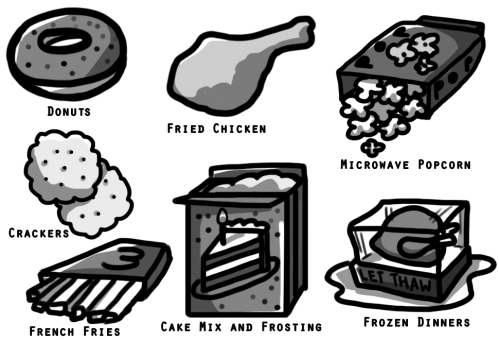Farewell Fats: FDA’s New Regulation

JOSEPH ALAN NEY-JUN
Staff Writer
When it comes to the nutrition label on the backs of food boxes, there are “good fats” and “bad fats,” but then there is the “worst fat” called transitive fat. Trans fat occurs naturally in nature but can also be artificially produced by humans and used as a preservative and substitute in foods.
However, these trans fats have no health benefits. They increase levels of low-density lipoprotein cholesterol and this in turn raises the risk for coronary heart disease.
The world has been consuming these trans fats en masse as more and more parts of the food industry have begun to produce trans fat to cheapen the cost of production, by substituting thicker and more expensive oils with trans fats as a binding agent.
The CDC estimated that if trans fat intake were reduced to the bare minimum, it could prevent 7,000 deaths and 20,000 heart attacks yearly. For these reasons, the Food and Drug Administration (FDA) has decided to ban additional trans fat additives in the manufacturing of food products.
“I believe that the removal of trans fats from food would be beneficial to America because changing regulations now will prevent future heart attacks for younger generations and lower our death rate,” senior Alondra Dimas says.
Despite the health benefits consumers would experience, the fat is useful to the food industry for speeding up production and allowing the industry’s products to last longer.
Due to increasing health awareness efforts in the United States, trans fat intake has already decreased drastically because most foods are made with minimal to no trans fats. A McDonald’s Big Mac only contains one gram of trans fat, but the recommended amount of trans fat per day is zero grams.
Dennis M. Keefe, director of FDA’s Office of Food Additive Safety, remarked that trans fat would still naturally occur in some foods, and that some trans fat is still produced in the manufacturing process. Additional additives, however, would be outlawed. According to the FDA website, “selecting foods with even small amounts of trans fat can add up to a significant intake.”
“Once plaque builds up it is highly difficult to remove. People think that in the long run it won’t affect them, but plaque begins to build up when you are young. The [numbers] may seem small but down the road one day you could drop dead from a heart attack,” school nurse Anita Man says.
The change forces companies that manufacture foods using trans fat to change their methods of production. Doughnuts may become more oily because a weaker binding agent would need to be used in the place of trans fat. Frozen pizzas, coffee creamers, and popcorn are some of the foods that will need to change their ingredients.
Until this proposal is ratified, the FDA recommends that consumers take extra care when picking out their food in the grocery store by looking at that nutrition label on the back of the food box.